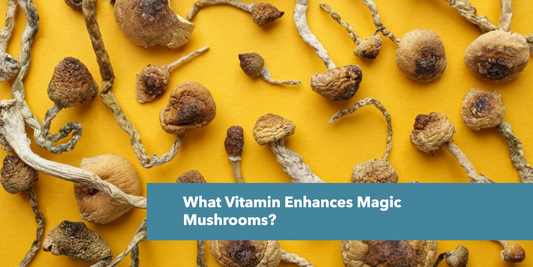What are the benefits of the Magic Mushrooms?
Magic mushrooms have garnered increasing attention for their potential therapeutic benefits in treating various mental health disorders. Here are some key benefits supported by recent research.
Depression Treatment
Anxiety and Existential Distress
Substance Use Disorders
Obsessive-Compulsive Disorder (OCD)
Neuroplasticity and Openness
Let’s learn each of its benefits and how it’s helpful to you
Depression Treatment: Psilocybin has shown promise in alleviating symptoms of treatment-resistant depression. Clinical trials indicate that psilocybin therapy can lead to significant improvements in mood and overall quality of life, often with effects lasting for several months after administration.
Anxiety and Existential Distress: Research has demonstrated that psilocybin can help reduce anxiety and existential distress in patients with terminal illnesses. Studies have found that a single dose can significantly decrease anxiety and improve emotional well-being in cancer patients facing end-of-life issues.
Substance Use Disorders: Psilocybin is being explored as a treatment for various addictions, including alcohol and smoking cessation. Preliminary studies suggest that it may help individuals overcome addiction by altering their thought patterns and enhancing their emotional resilience.
Obsessive-Compulsive Disorder (OCD): There is evidence that psilocybin may be effective in treating OCD, with some studies showing reductions in symptoms following therapy sessions.
Neuroplasticity and Openness: Psilocybin appears to enhance neuroplasticity, the brain's ability to form new connections, which may facilitate positive changes in behavior and thought patterns. It has been associated with increased openness, a personality trait linked to creativity and appreciation of new experiences.
How do magic mushrooms help with depression?
Magic mushrooms, which contain the psychoactive compound psilocybin, have shown significant potential in alleviating depression, particularly in individuals with treatment-resistant forms of the condition.
Rapid Remission
Sustained Benefits
Comparison to Other Treatments
Clinical Evidence
Rapid Remission: In a large clinical trial, nearly one-third of participants with severe depression experienced rapid remission after receiving a single 25mg dose of psilocybin combined with psychotherapy. This contrasts sharply with traditional antidepressant response rates, which typically range from 10% to 20% for treatment-resistant depression.
Sustained Benefits: The effects of psilocybin can last for weeks or even months. In the afore mentioned trial, 29% of participants remained in remission three weeks after treatment, with benefits persisting in about 20% at the 12-week mark.
: Research indicates that psilocybin may be more effective than traditional antidepressants and other treatments, such as niacin or micro dosing psychedelics, in reducing depression symptoms. A meta-analysis highlighted that psilocybin treatments yielded significant improvements in depression scores compared to placebo.
How do magic mushrooms compare to other psychedelics like LSD or MDMA?
Magic mushrooms (psilocybin) and other psychedelics like LSD (lysergic acid diethylamide) and MDMA (3,4-methylenedioxymethamphetamine) share some similarities in their effects but also exhibit significant differences in their origins, experiences, and potential therapeutic uses. Here’s a difference based on its key aspects.
Differences
Duration: A typical magic mushroom trip lasts about 4 to 6 hours, while an LSD trip can last 10 to 12 hours. MDMA effects usually last around 3 to 6 hours.
Nature of Experience: Magic mushrooms often produce a more holistic, body-centered experience, whereas LSD tends to create a more cerebral experience focused on thoughts and ideas. MDMA is characterized by its empathogenic effects, fostering emotional connections without the intense visual hallucinations associated with the other two.
Onset Time: The onset for magic mushrooms typically occurs within 30 to 60 minutes, while LSD can take 20 minutes to 2 hours. MDMA effects usually begin within 30 to 45 minutes.
How effective are magic mushrooms in treating addiction?
Magic mushrooms are effective in treating addiction and other substance abuse. A study at Johns Hopkins University found that two doses of psilocybin, combined with psychotherapy, helped 80% of participants reduce their alcohol consumption by at least 50% one year after treatment. The researchers noted that psilocybin therapy was more effective than conventional treatments for alcohol addiction.
In another study led by researchers at Johns Hopkins, 80% of participants were able to quit smoking after receiving psilocybin therapy, with 67% still abstinent at the 12-month follow-up. This success rate is significantly higher than traditional smoking cessation methods.




